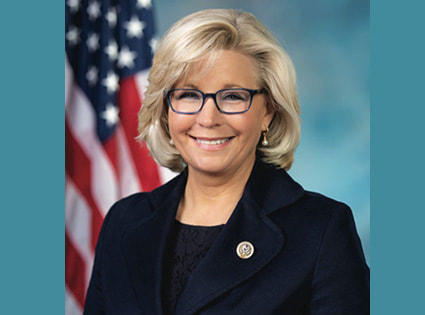GOP: In name only
In May, Liz Cheney’s position as Conference Chair of the Republican house minority was revoked following her criticism of Donald Trump. This move, while unprecedented, was logical since much of the role consists of communicating party messaging, and her incongruence with the rest of the GOP may have left her ill-suited. Even still, it raised some questions for me regarding the direction of the Republican Party. In my June edition article called “The Removal of Cheney: Causes, Contention, and Consequences” I asked, “is Trump-loyalism a new requirement of a Republican politician?” On November 13th, the Wyoming Republican Party answered, yes.
In Buffalo, Wyoming, the state party central committee gathered to vote to no longer recognize Cheney as a member of the Republican Party. The motion was passed 31-29, and while this action is extreme, a few misconceptions need settling. First, while it may seem that Cheney has some allies in the committee, as its results were extremely close, those who voted against the resolution have reported doing so in order to “stop giving her publicity.” Second, no private or political body is legally allowed to change or restrict party affiliation. Cheney remains a Republican representative; however, the motion retains symbolic significance. The Wyoming GOP’s rationalization for this move is relatively similar to that of her removal from her conference chair position in the house (Trump-criticism). And it, therefore, seems fair to conclude with some certainty that at least among republican political elites in Wyoming, Trumpism is indeed a requirement for political viability. Further, this is another dot on the national graph trending towards a Republican Trumpist hegemony. We will have to watch and see as the midterm elections unfold (especially in Wyoming) if the voters agree or not. This trend is extremely interesting, seemingly characterizing a sort of party-wide cognitive dissonance, splitting rhetorical and actual political attitudes. The GOP or “Great Old Party” is a lingering rhetorical brand valuing consistency and an affinity to maintain old conservative norms of the free market, constitutional fundamentalism, and conservative household structures. Even Trump has utilized this rhetorical brand in slogans such as “Make America Great Again,” but in practice is far more economically interventionist in his implementation of tariffs and subsidies, and constitutionally revisionist in his challenging and questioning of democratic electoral norms. Trump-critical republican politicians are in the minority which means that as this revolution severs the party, more traditional conservatives like Liz Cheney are losing the party branding that more accurately describes them. However, it is always possible that republican states will prove me wrong. In Texas for example, Trump-critical Republican representative Dan Crenshaw is rated quite favorably. A broad coalition party including both conservative types would probably result in better electoral outcomes for the GOP than if they were to split, but then again, perhaps the two factions are now so far apart politically that campaigns targeted to one faction are a better option. The only thing that is clear in US party politics today is that nothing is clear. |
